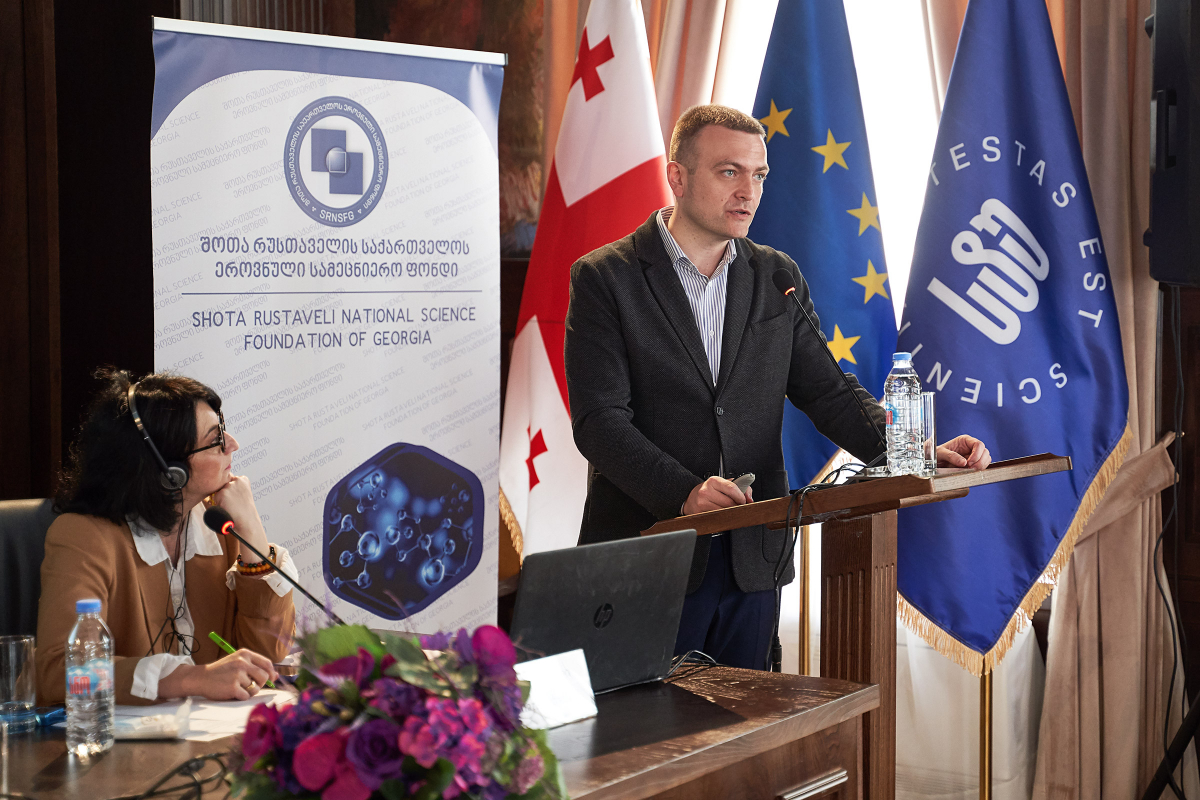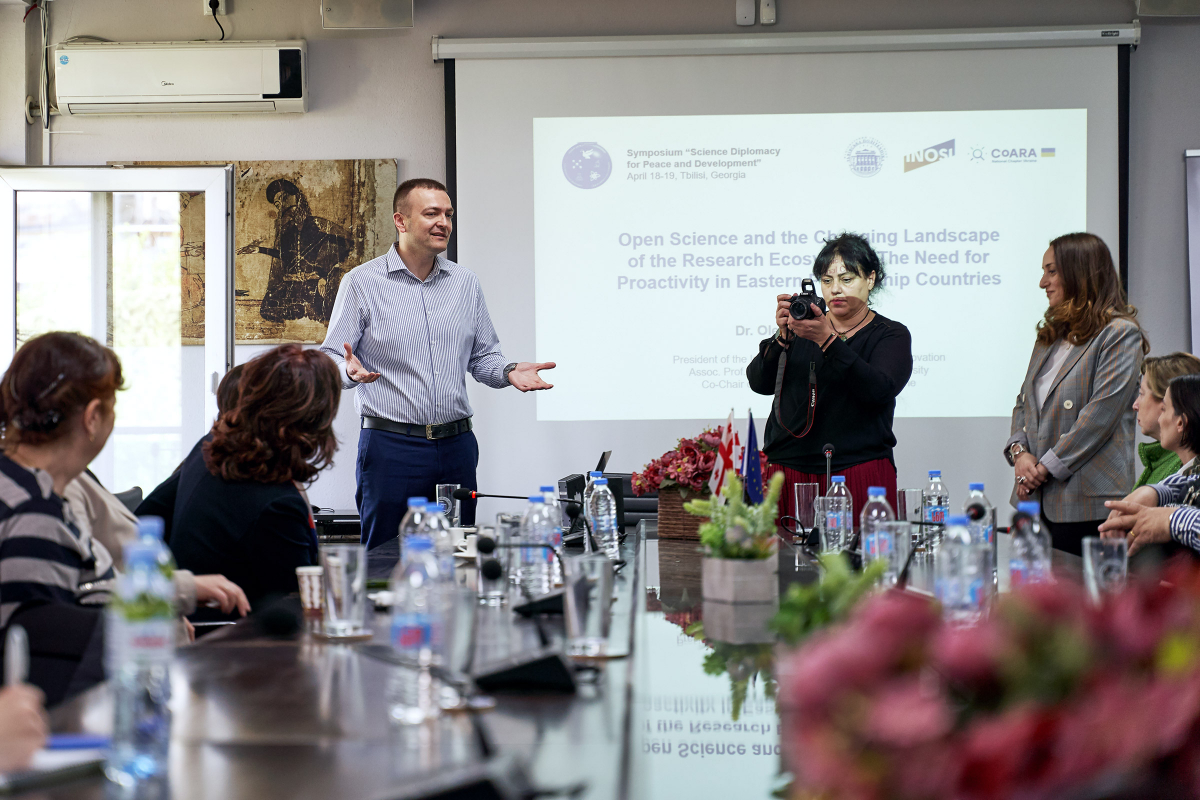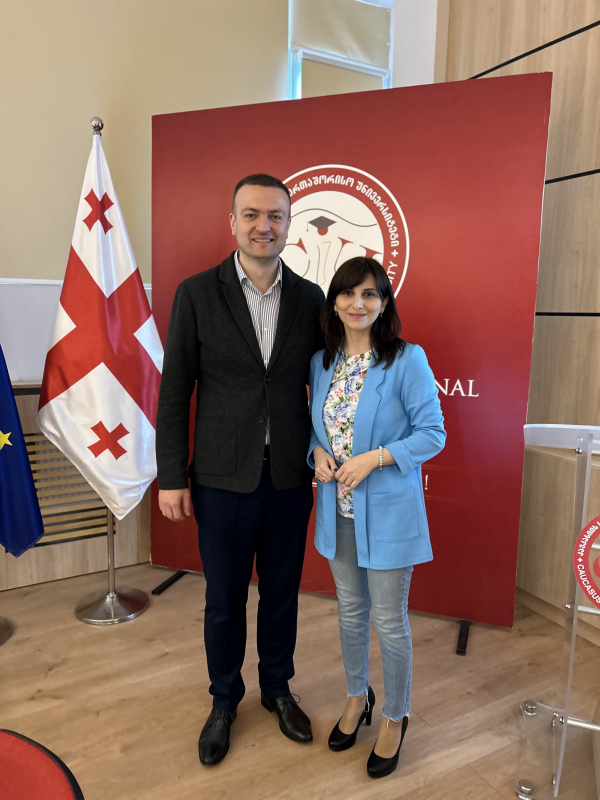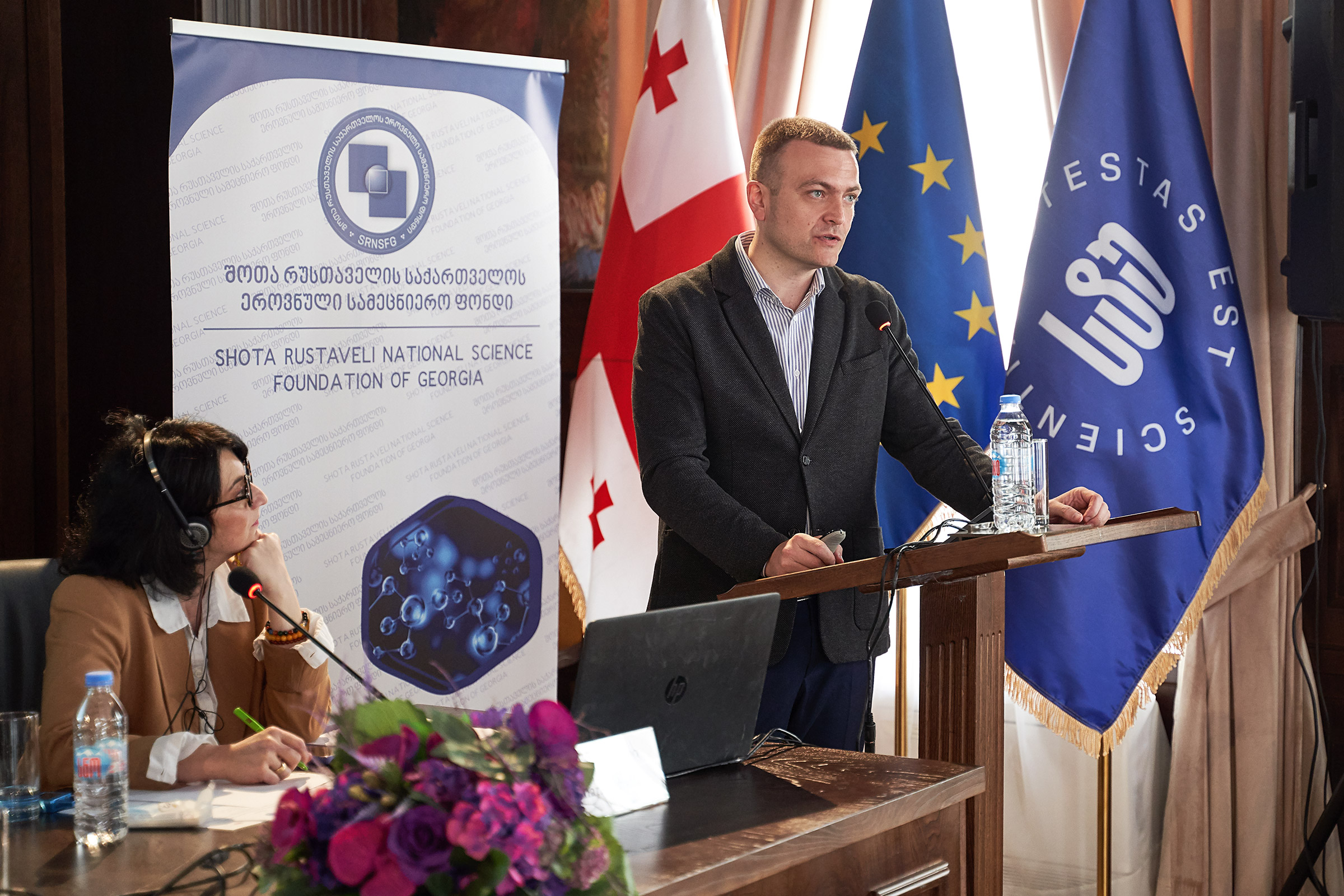Dr. Oleksandr Berezko, assoc. prof. at Lviv Polytechnic National University and Open4UA project coordinator participated in the symposium “Science Diplomacy for Peace and Development” jointly organised by Shota Rustaveli National Science Foundation of Georgia and the global Francophone University Agency. The event took place in Georgian Technical University and the Rustaveli Foundation in Tbilisi from 18-19 April 2024 and brought together researchers, educators as well as government and public figures from Eastern Europe and other regions.
Science diplomacy is extremely relevant in today’s turbulent world. Among its aims are the use of science as a soft power to advance diplomatic objectives, e.g. for building bridges between nations, as well as the direct support of diplomatic processes through science. On the other hand, the use of diplomatic action to facilitate international scientific collaboration is also promising and even vital for research ecosystems in some cases, so the whole concept is multidimensional and requires the involvement of all stakeholders.
At the same time, the role of Open Science in the worldwide academic community and science diplomacy particularly is rapidly increasing, as opening up various stages of the research lifecycle brings tremendous advantages for the impact of research. Therefore, open science practices can be useful for the soft power influence science diplomacy can have. On the second day of the symposium, Dr. Berezko led a workshop on Open Science in the development of science diplomacy, which was a great opportunity to share early Open4UA project results and Ukrainian vision in this regard. It is important to mention that the Rustaveli Foundation is one of the three CoARA signatories in Georgia, so sharing common values helped build understanding and fostered discussion.
The event was also an opportunity to visit the Caucasus International University and meet colleagues from the Georgian Reproducibility Network to be soon established. The latter is important as the launch of a reproducibility network in Ukraine is planned for later this year during the Ukrainian Open Science Forum at Lviv Polytechnic, and the synergy is the key to ensuring progress.
Dr. Berezko’s participation in the symposium and other activities during his visit to Tbilisi will foster the establishment of new academic consortia featuring Georgian and Ukrainian research-performing organisations and academic communities. Both countries are actively pursuing their EU integration projects, and there are lots of things to collaborate on in this field.



